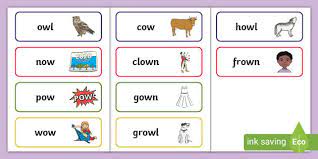Key points about words that end with o w

Welcome words that end with o w to a linguistic adventure exploring words that end with the unique letter “o w”. From common vocabulary to silent endings, pronunciation quirks, and spelling rules, we are diving deep into this fascinating aspect of the English language. So buckle up and get ready to unravel the mysteries behind words ending in o w!
Common words that end with o w
Let’s dive into some common words that end with o w. Have you ever noticed how many everyday words contain this unique ending? Words like “arrow,” “fellow,” and “window” all have a distinct charm to them.
When we think of the word “arrow,” what comes to mind? Perhaps thoughts of archery or direction. It’s fascinating how such a simple word can evoke imagery and meaning effortlessly.
Then there’s the word “fellow.” This term often refers to a companion or colleague, someone we share experiences with. It’s amazing how language can encapsulate relationships in just one word.
Consider the word “window.” A portal to the outside world, allowing light and air to filter through our spaces. The simplicity of this term belies its importance in our daily lives.
Common words ending with o w carry weight and significance, adding depth to our vocabulary without us even realizing it.
Words with silent w at the end
Ever noticed how some words end with a silent ‘w’? It’s like a little linguistic surprise waiting at the end of the word. Take “sword” for example, you don’t say the ‘w’ but it adds a certain flair to the word.
Another interesting one is “answer”. The ‘w’ quietly takes its place at the end, almost unnoticed but still there nonetheless. And then we have “wrath”, where the ‘w’ stands silently, letting the rest of the word do all the talking.
These silent ‘w’ endings can be tricky for non-native English speakers. Imagine trying to figure out why ‘know’, pronounced as /noʊ/, doesn’t sound anything like it’s spelled!
Words with silent ‘w’ endings add an element of mystery and charm to our language. They keep us on our toes, reminding us that English is full of surprises – even in its quietest moments.
The pronunciation of words ending in o w
Pronouncing words that end in “o w” can sometimes be tricky. For example, the word “arrow” is pronounced as “air-oh,” not “arr-ow.” The silent ‘w’ at the end of these words can throw off pronunciation if you’re not familiar with the rule.
Another common word ending in “o w” is “elbow,” pronounced as “ell-boh.” It’s essential to pay attention to how each letter contributes to the overall sound of the word when pronouncing it correctly.
Some words ending in ‘o w’ like ‘window,’ pronounce both letters distinctly, while others like ‘fellow,’ blend them together smoothly. Understanding these nuances can help improve your pronunciation and communication skills.
Practice saying words like ‘narrow,’ ‘meadow,’ and ‘borrow’ out loud to get comfortable with their unique sounds. Remember, practice makes perfect when it comes to mastering pronunciation!
Spelling rules for words ending in o w
Let’s dive into the spelling rules for words ending in o w. When adding a suffix, like -ed or -ing, to a word that ends in o w, remember to keep the original spelling intact. For example, “borrow” becomes “borrowed” and not “borrowd.”
When pluralizing nouns that end in o w, simply add an s at the end. Words like “arrow” become “arrows,” following this rule effortlessly.
Some words with silent w at the end might trick you. Take the word “know.” Even though it doesn’t sound like there’s a w at the end, it’s there!
For verbs ending in o w that require an -s or -es ending for third-person singular forms (he/she/it), maintain the original spelling of the verb before adding these endings. For instance, “plow” turns into “plows,” not “plowes.”
Understanding these simple guidelines can help you navigate through tricky spellings effortlessly when dealing with words that end in o w!
Fun facts about words ending in o w
Did you know that some words ending in “o w” have interesting origins? For example, the word “window” comes from the Old Norse word “vindauga,” which means “wind eye.” It was believed that windows were openings for the wind to enter homes. Another fun fact is that the word “rainbow” combines two Old English words, “regen” meaning rain and “boga” meaning bow.
Certain words with silent ‘w’ at the end can surprise us. Take the word “sword” – its original pronunciation included a distinct ‘w’ sound! Over time, this silent ‘w’ crept in and stayed put. Similarly, “answer” once had a pronounced ‘w’, making it sound quite different from how we say it now.
Exploring these linguistic curiosities adds depth to our understanding of language as a living entity constantly evolving through time. Words are not just tools for communication; they carry stories of their own evolution and cultural significance.
Conclusion
When it comes to words that end with “o w”, they can be quite interesting and diverse. From common words like “below” and “arrow” to words with silent w at the end such as “know” and “ghost”, these words offer a unique twist to the English language.
Understanding the pronunciation of words ending in o w may seem tricky at first, but following spelling rules can help you get them right every time. And let’s not forget about some fun facts about these words – did you know that the word “window” originally meant ‘wind eye’?
So next time you come across a word ending in o w, remember to pay attention to its pronunciation, spelling, and maybe even uncover some hidden meanings behind it. Words are fascinating creatures that constantly surprise us with their intricacies!


![[silent war] taming a tsundere](https://newsipedia.com/wp-content/uploads/2024/04/download-20-1.jpeg)

